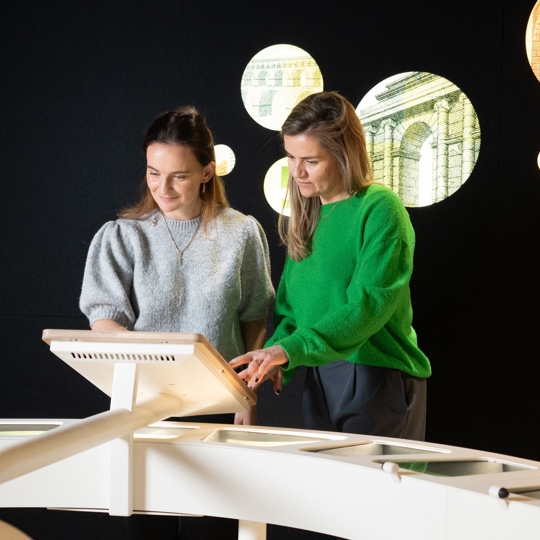Education
Learn all about the economy


Watch videos and animations on money and the economy. From inflation to money laundering. You will also find materials to help you prepare for a talk or project here.
Everything is getting more expensive, from refreshments on a terrace to a ticket to a festival. We call that inflation. De Nederlandsche Bank aims for prices to rise by 2% a year on average. Not too much, but not too little either. We have various ways to influence inflation. For example: raising interest rates can reduce inflation. How does that work in practice? Watch the animation.
There are many ways to make payments. You can use cash, for example, or your smartwatch or bank card. Digital payments are very fast. Money goes from your account to another in seconds. The Netherlands has one of the most efficient payment systems in the world. Find out in this video what goes on behind the scenes in a digital payment.
We all get them from time to time: messages from scammers asking you for your personal details or to transfer money quickly. Even worse is when hackers break into a bank’s payment systems and steal many people’s savings all at once. De Nederlandsche Bank has developed a special programme that enables banks to test their resilience to such attacks. The more secure their systems, the lower the risk of your account being looted. How does that work in practice? Watch the video with a cybersecurity expert at De Nederlandsche Bank.
Global warming concerns us all. De Nederlandsche Bank is committed to sustainable prosperity. Not only for now, but also for later, for our children and grandchildren. Climate change entails financial risks for banks, insurers and pension funds. De Nederlandsche Bank makes sure they manage these risks effectively so that they remain financially sound. How does that work in practice? Watch the video featuring two colleagues from De Nederlandsche Bank.
De Nederlandsche Bank is responsible for issuing clean, undamaged and genuine euro banknotes and coins. Transports of used banknotes regularly arrive at De Nederlandsche Bank. Here, sorting machines check that they are clean, undamaged and genuine. The rejected notes are shredded immediately. Fake notes (counterfeits) are kept aside for further investigation. Banknotes that are still suitable for use are put back into circulation. This way, we ensure that the quality of the banknotes remains high. Coins are also returned to De Nederlandsche Bank and put back into circulation after verification. Watch the video.
Criminals do not earn their money honestly. They are very eager to convert their ill-gotten gains into assets that seem legal. Because then they can pay more easily with it. We call this money laundering, and it is a crime. Naturally, De Nederlandsche Bank works hard to tackle money laundering. Banks and other financial institutions are also taking action to make sure stolen money does not get into the payment system. How does that work in practice? Watch the video with experts from De Nederlandsche Bank.